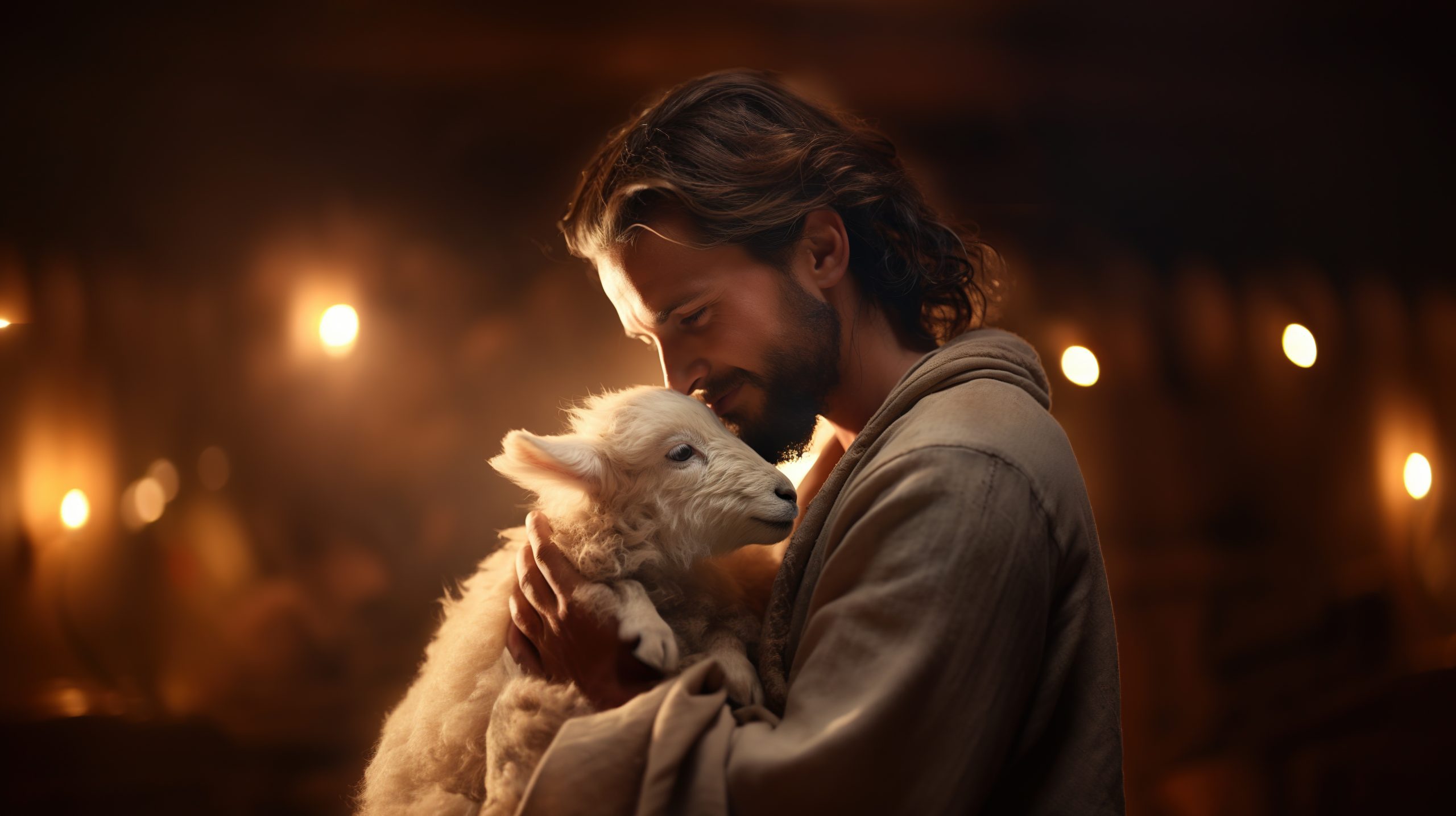“The fire and wood are here, but where is the lamb for the burnt offering?” (Genesis 22:7).
Perhaps Isaac’s question deserves a place at the top of a list of questions that have pierced the ears and hearts of listeners. However, it is a simple and logical question for the one who asks it. In the ceremony of offering a sacrifice, the lamb was the central element. As Abraham and his son climbed the mountain, moving further and further away from anywhere they could find an animal to sacrifice, Isaac realised that they only had wood, a knife and fire. But without a victim, there could be no sacrifice.
Faith that does not waver
Abraham’s life was a journey of faith from beginning to end. We do not know how easily he adapted to his status as a stranger and traveller, or how difficult it was for him to leave his country, relatives, friends, and inheritance. Part of himself must have remained in the place he had called home for 75 years after leaving “even though he did not know where he was going” (Hebrews 11:8) in answer to God’s call.
In chapter 22 of Genesis, we encounter an Abraham who has been through a great deal and who finally seems to be living the happy ending he has been waiting for. He had reached the Promised Land and received the gift he had waited for all his life: the son through whom all the families of the earth would be blessed—the promised heir who could only have become a reality through a miracle. Perhaps he could already see himself at the end of the long road he had travelled alongside God, enjoying the rewards of a happy and contented old age.
But just when he thought he could take stock of a life marked by trials, Abraham found himself face to face with the greatest test of his life.
The journey was not over; the most challenging road was just beginning. Just when he thought he could take stock of a life marked by trials, Abraham found himself face to face with the greatest test of his life. The command was both clear and shocking (Deuteronomy 12:30–31): “Take your son, your only son, whom you love—Isaac—and go to the region of Moriah. Sacrifice him there as a burnt offering on a mountain I will show you” (Genesis 22:2).
Half a century after the first sacrifice demanded of him—abandoning his native land and his loved ones—he was called upon to give up the son he had longed so much for, his support and comfort in old age. There was no doubt as to whom he was to sacrifice—it was not Ishmael or his servant Eliezer of Damascus (Genesis 15:2), but Isaac, his beloved son—the son whose death from accident or illness would have been a tragedy[1], and whom he was now being asked to sacrifice with his own hands. As Abraham prepared for a new journey, broken with grief, he did not know how close the One who understands his agony is to him, because He too has a beloved Son, in whom He finds all His pleasure.
The sacrificial lamb
The biblical text leaves us only to guess how much agony Abraham endured. Not a single fragment of conversation with his loved ones is recorded, because he decides to confide in God alone about the burden that weighs on his heart. But he undoubtedly offered up fervent prayers, either to confirm that he had understood the divine command correctly, or for the cup to be taken from him (as Another would implore in the future). We only see the actions that follow the terrible inner struggle: he wakes up early, saddles the donkey, chops the wood, and sets off with Isaac and two servants (Genesis 22:3).
Even the strongest faith would be hard-pressed to withstand the onslaught of doubt over the course of a three-day journey. Could God, who commanded people not to kill, be the author of such a cruel request? What message would Abraham, a messenger of the true God, be sending to the pagan nations by killing his son? And if God had promised to bless all the earth through Isaac and that the Redeemer of the world would be born from his descendants, how could this promise be reconciled with Isaac’s death? Amidst all these conflicting thoughts, Abraham’s unshakeable faith shines forth: “By faith Abraham, when God tested him, offered Isaac as a sacrifice. He who had embraced the promises was about to sacrifice his one and only son, even though God had said to him, ‘It is through Isaac that your offspring will be reckoned'” (Hebrews 11:17-18).
For someone who had not witnessed or even heard of a single resurrection, this thought represents the height of faith in a God who fulfils all His promises, even when His commands seem to negate the possibility of their fulfilment. Like Him, Abraham would receive his son back as if he had been raised from the dead. However, until God returned his son to him, Abraham had no guarantee that, if it were to happen, Isaac’s resurrection would occur immediately (or at least during his lifetime).
For someone who had never witnessed or even heard of a resurrection, this belief represented the pinnacle of faith.
Isaac was the fruit of a miracle wrought by divine love. On Mount Moriah, Abraham proved that he was willing to return this gift to the Lord, despite having no guarantee that he would see Isaac again. His sacrifice offers insight into the pierced heart of God, who parted from His beloved Son at the risk of losing Him forever.
If the Son’s struggle with sin was real and fierce, then the risks involved were just as real and commensurate with the stakes, as writer Ellen White notes: “Never can the cost of our redemption be realised until the redeemed shall stand with the Redeemer before the throne of God. Then as the glories of the eternal home burst upon our enraptured senses we shall remember that Jesus left all this for us, that He not only became an exile from the heavenly courts, but for us took the risk of failure and eternal loss.”[2]
When God shows Abraham the place where the sacrifice is to be made, he parts from his servants and continues on his way with Isaac. Isaac carries the bundle of wood on his back, just as Another will later carry His wooden cross on His broken shoulders. “The poignant picture is of the victim bearing the instrument of his death.” When faced with Isaac’s confusion about the absence of the sacrificial animal, Abraham does not yet reveal the cruel truth: that Isaac is to be the sacrifice. Instead, his father’s answer reveals the faith that continues to pulse even under the pressure of pain and the unknown: “God himself will provide the lamb for the burnt offering, my son” (Genesis 22:8).
The Bible does not tell us how Isaac received the news, nor how Abraham presented him with a command that he himself did not understand. It presents us only with the facts: the father built an altar, placed the wood on it and bound his son on top of it. Given the age difference between them and the imbalance of power (Isaac climbed the mountain carrying the wood instead of his elderly father precisely because he was a strong young man), it is clear that the son did not resist.
Love, suffering, obedience: a path that another Son and another Father have walked since the beginning of time.
That altar must have witnessed many tears and embraces from which neither party wanted to break free. In the end, however, it was the place where Isaac, like his father before him, submitted to the heavenly command. Love, suffering and obedience: a path walked by another Son and another Father since the beginning of time.
The only difference was that no angel cried out from heaven to stop the death of the Son (Genesis 22:11-12). Heaven remained silent while Jesus was nailed to the cross, experiencing indescribable pain. He was the Lamb, and no one else could take His place.
The Lamb without blemish
When Abraham left his tent and went to Mount Moriah, he began a journey at the end of which a lamb awaited him. Had he known this, the darkness of his pain would have been dispelled so easily! In fact, his entire journey, from the time he left Ur, led him to “the Lamb who was slain from the creation of the world” (Revelation 13:8); to the God who allowed Himself to be killed like a sacrificial animal for “the joy set before Him” (Hebrews 12:2). This was a joy that included us all, every name and every life, so that no one could snatch us out of the grasp of His love.
On the path to Him, doubts, discouragements and stumbling blocks often corner us, where the fierce enemy of our souls stands in our way. His angry lion’s roars try to drown out the only question that matters: “But where is the Lamb?”
This joy encompasses us all, each of us individually, so that no one can tear us away from the embrace of His love.
At the most difficult point in their journey, when the outcome was approaching, the Bible mentions that Abraham and Isaac “went on together” (Genesis 22:6, 8). But Someone greater than the trial they were going through was walking beside them, unseen.
In times of worry, frustration or fear, the Lamb accompanies us, enveloping us in his fearless love. When there are no visible signs, He has already prepared a place for us to look to with faith, to the glorious end of our story. As He did to Moses, He extends an invitation we cannot refuse: “There is a place near me where you may stand on a rock” (Exodus 33:21).
And when our assurance of salvation begins to waver and we are intimidated by the number of failures we have experienced compared to the few victories, the remedy is to remember where the Lamb is in the plan of salvation. To clarify the role of each individual in the plan of salvation, author and pastor Philip Dunham takes his readers through a short quiz about the offices established in the Old Testament sanctuary: “Did God require that the offerer or the offering be ‘without blemish’? And was it the blood of the sinner or the blood of the lamb that made atonement? Was the sinner justified, cleansed, reconciled with God on the basis of being the right kind of offerer or of bringing the right kind of offering?”[3]
“Was the sinner justified, cleansed, reconciled with God on the basis of being the right kind of offerer or of bringing the right kind of offering?”
When God looked upon the pain and chaos of a world condemned to death, He knew that only one price could be paid for salvation, and that only one being was worthy to pay it: “For you know that it was not with perishable things such as silver or gold that you were redeemed… but with the precious blood of Christ, a lamb without blemish or defect” (1 Peter 1:18–19).
As Dunham emphasises, it is only through the Lamb who died in our place that we have received all that God has to offer as a gift: salvation (Ephesians 2:8), forgiveness and repentance (Acts 5:31), righteousness (Romans 5:17), faith (Romans 12:3), victory over sin (1 Corinthians 15:57), a new heart (Ezekiel 36:26) and eternal life (Romans 6:23).
The Lamb Himself is the gift that only a Father’s heart could have conceived.
Carmen Lăiu is an editor at Signs of the Times Romania and ST Network.



















